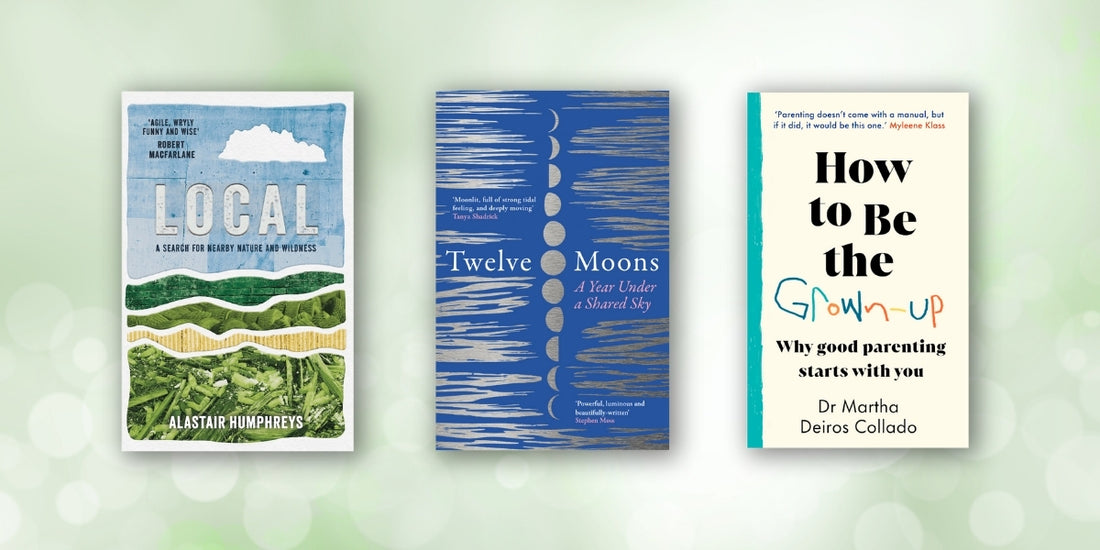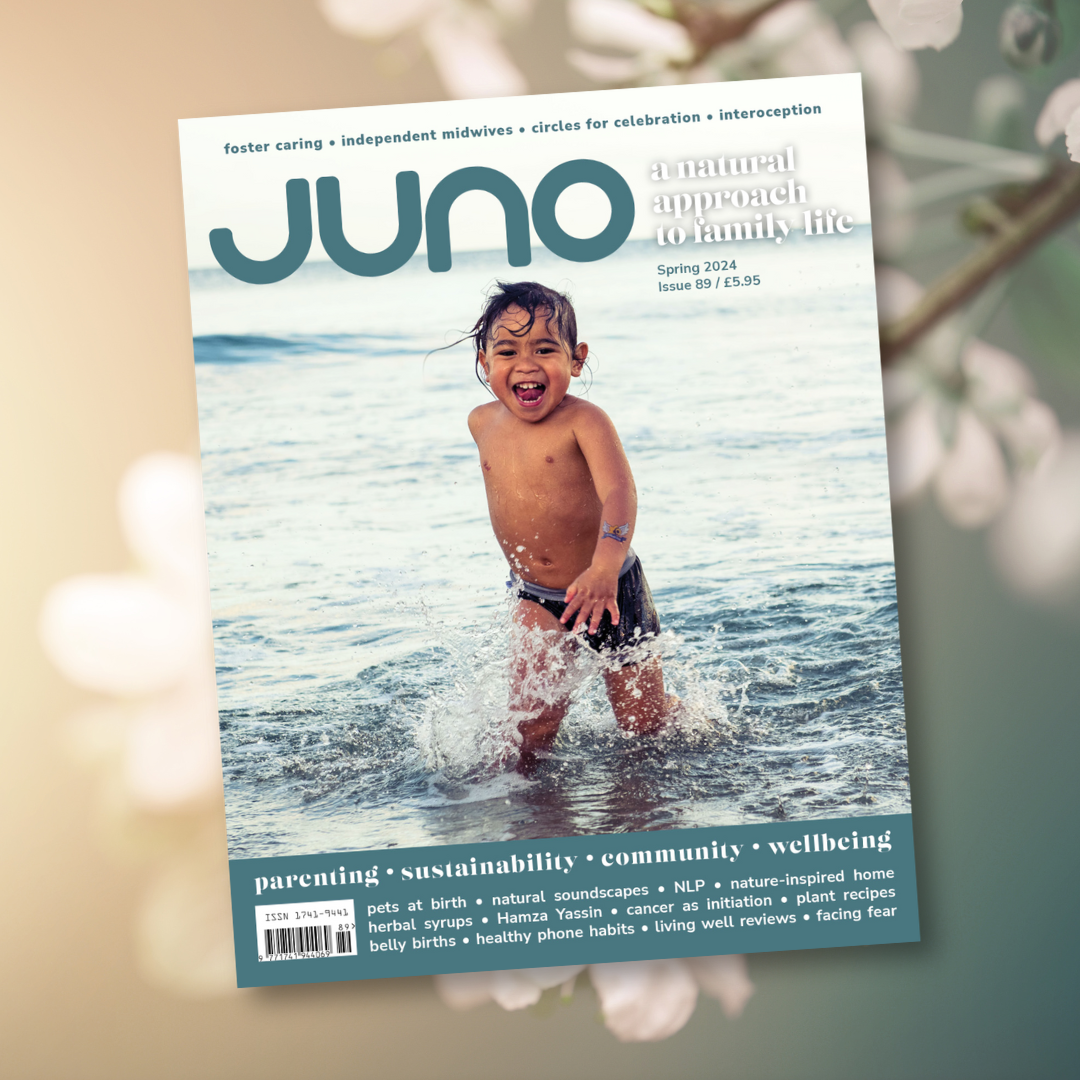 Local: A Search for Nearby Nature and Wilderness
Local: A Search for Nearby Nature and Wilderness
By Alastair Humphreys, Eye Books
This book is fantastic. Humphreys, who has adventured across many countries, aimed to “make exploring my backyard as fulfilling as travelling the world”. I was immediately drawn in by the introduction. Musing that “just 1% of us take more than half of all flights” and admitting that he did not like the area where he lives, he only lives there because his family does and he likes them (the dry humour is a great aspect of the book), Humphreys buys an OS Explorer map, where 1km of land is represented by 4cm. He then sets off to explore one grid square a week.
What he discovers is fascinating, and is as much about the local area as himself – about land issues that start to bother him: intensive farming, littering, access, and our collective lack of connection to nature, but our impact on it. He takes the time to stop and notice and research, learning plant and bird names. He finds amazing places, like deneholes, tiny mines sunk to gather chalk to spread on fields as fertiliser. He lowers himself into the hole and discovers domed chambers hidden beneath the incongruous woodland.
I love how this book is full of niche facts about pub names and who created the words for groups of birds and animals. Being part of Humphreys’ journey of local discovery reminded me to appreciate the ordinary in every day. I love the photos of random things – the sorts of things that catch my eye to photograph too – and the chance conversations. And I love the ramblings and observations that morph into researched facts about serious issues that I needed to stop and think about.
I was drawn in. I wanted to know more, to see where he would go next and what he would find. Humphreys does not give his location, so we aren’t locked into a sense of place, more a sense of purpose. There is much to reflect on in these there are so many lives playing out on this small map, so many demands on the land’s resources, so many differing priorities pages, and I’m grateful for Humphreys’ attention to detail. I’m sure I’ll notice more next time I go outside as a result. The writing is evocative, and some lines will stay with me: “the daylight
already leaking from the cold mid-winter sky as the calendar year faded towards its close”. The book is written within the Wheel of the Year, so you get a strong sense of seasons, and you can dip in and out as each short chapter is about one grid square.
In his conclusion, Humphreys attempts to cycle through every square on the map in one unbroken journey. He doesn’t quite make it, but he likes that there are squares left unexplored: “To know one place well and to make it better is the work of a lifetime.” I looked up the official Explorer map of where I live and it’s a bigger area than I expected, so lots of capacity for adventure and exploration. You can also order a custom map with your home at the centre. Humphreys asks us that if we feel inspired by the issues he’s raised, to talk to people and write to our MP as, ultimately, only governments can effect systemic change. And that if we start exploring our own local map, to tag on social media with #ASingleMap to inspire others. And I just might… SF
 Twelve Moons: A Year Under a Shared Sky
Twelve Moons: A Year Under a Shared Sky
By Caro Giles, HarperNorth
It’s the pandemic, and Caro Giles finds herself separated from her husband, a single mother to four daughters, one of whom is so unwell she finds it difficult to leave the house. Giles is trying to claw back some semblance of herself amid her heartbreak and life’s demands. Twelve Moons follows life over the course of a year, with the moon and its phases a companion through the dark times. It’s written with such raw honesty, courage and spirit. The book lays bare the relentlessness of caring without a break as a single parent, of trying to not lose a sense of yourself in the mothering. The author’s tenacity, love and support for her children, and herself, through great personal hardship is truly admirable. Like the moon that she is so enamoured of, she rises again and again.
Giles considers what it is to be female in society and in history. She frequently references witches, and I love the mythic power she draws from this version of the female with its roots that reach so far back through time. “Witching,” she says, “is the very essence of wild feminine power, not a recipe for nightmares. Sometimes I become a sea witch, weaving spells in the waves, screeching and spinning in the surf. Witches are girls who rebel and dare to be different, women who refuse to conform, who challenge with their eyes.”
Much of her strength is drawn from nature. Sea swimming becomes vital to her and to her eldest daughter, who struggles with being herself in a world not set up for the neurodivergent. Giles makes many beautiful connections with the landscape. She describes an experience in the autumn in which she sung with a group of women in a field a few miles inland from the coast in north Northumberland. “By singing tunes that echoed through the years, we not only connected with each other, but also with the people who had shared the land before us. We became another thread in the story, our voices weaving through the hedgerows.” I found this thought a real comfort, that our lives might be a fleeting moment in the land’s ongoing story, but they will resonate through the lives of the people who come after us, just as we stand with all those who went before us. This is a beautifully written and thoughtprovoking memoir. AE
 How to be the Grown Up: Why Good Parenting Starts with You
How to be the Grown Up: Why Good Parenting Starts with You
By Dr Martha Deiros Collado, Bantam
Dr Martha Deiros Collado’s approach to parenting is rooted in empathy and understanding for the child. This is an ‘authoritative parenting’ approach, which was, as the author describes, rebranded as ‘gentle parenting’ in “an attempt to differentiate it more clearly from authoritarian parenting, which sounds very similar but is vastly different”. She defines the style as, “punctuated with warmth and empathy alongside clear, fair and firm boundaries towards a child, which allows parents to hold the book urges us to grow into better versions of ourselves a position of leadership in the household while respecting and considering a child’s emotions and needs within the context of their developmental stage”. Important in this approach is a curiosity to uncover what a child’s behaviour might be communicating, and the author comes back to this time and again throughout the book when discussing different scenarios.
The book urges us to grow into better versions of ourselves and the title, I think, is pertinent. If we can better regulate our own emotions by dealing with things that we find difficult, we can better support our children. We can be the grown-up. She talks about the scripts and stories we learned in childhood and how these often shape our attitude to various things that come up for us as parents. I have read and heard many times of the importance of examining our own childhoods to help us make peace with things that were difficult for us as children so that they don’t enter into our parenting. I have always considered this in the broadest terms, looking for big moments to examine. What this book helped me to see is how impactful seemingly small inherited beliefs are on our parenting. An example might be food and mealtimes. Perhaps we were encouraged to eat everything on our plate, or to finish our vegetables before we could have pudding. The author goes into what these narratives communicate to a child in terms of their developing attitude to food. The book helped me think about many things more carefully.
The areas she covers are extensive: foundations, feelings, losing control, discipline, skills for living such as using the toilet, sleep and play, big topics such as consent, sex and death, and family life. This is a helpful and supportive guide that encourages and facilitates self-reflection, and offers detailed, practical help with parenting. AE
____
Reviews by Alice Ellerby and Saffia Farr
Published in issue 88. Accurate at the time this issue went to print.



